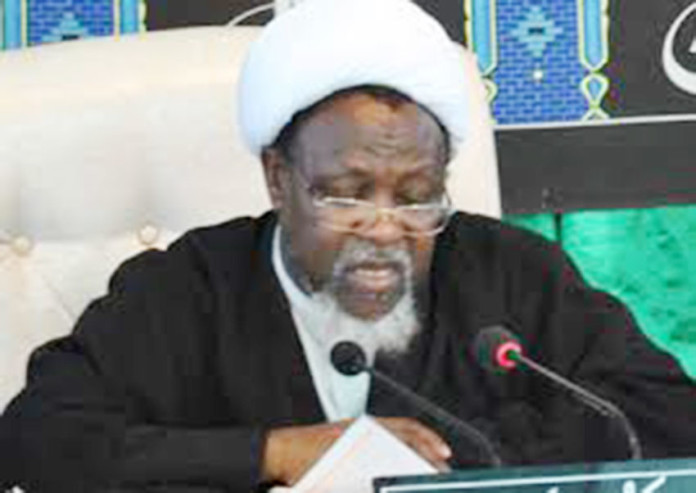The Islamic Movement in Nigeria (IMN), popularly called the Shiites Sect, Saturday alleged that another member of the sect, Abbas Isiyaku, detained by the Army and denied medical attention, has been shot and killed in prison.
The Head of the sect’s Media Forum, Ibrahim Musa, said in a statement that 13 other ‘critically wounded’ members of the movement are still being held in Kaduna Prison.
The Niche online could not independently confirm the damning allegations of extra-judicial executions.
In Musa’s words, “Many more others, number unknown, are still being held incommunicado at various military barrackses and other detention centres without access to medical care. This is inclusive of our leader Sheikh Ibraheem Zakzaky and his wife.
“Many of those that died much earlier, died in similar circumstances, after being shot and wounded, soldiers prevented access to them for prompt medical care even to the Red Cross officials. It is very unfortunate that in our democratic country, the army still detains civilians without proper recourse to the law of the land. We don’t know if Kaduna has already been declared a state under emergency law. If not, why should people arrested by the army still be in army gulags for almost 3 weeks?” Musa queried.
He said the IMN was therefore calling on civil liberty organisations and other well-meaning Nigerians to help tell the Federal Government to release its members still in detention, most especially those with various degrees of bullet and burn wounds they sustained since December 12, 2015 during the brutal clampdown.
“Failure to release them will belie the response of the COAS to members of the committee set up by NSCIA, by appreciating the concern of NSCIA in this avoidable incident,” he added.
The sect also demanded the immediate release of the corpses of its members in military custody “which are in their hundreds.”
“And if as it is being speculated, they have buried them in mass graves, then they should inform the world where the mass graves are. These people they murdered extra-judicially are Nigerians with families and relatives who are ready to own their corpses and have rights to them,” Musa added.
Meanwhile, in Saudi Arabia, the government has executed 47 “terrorists”, according to the interior ministry, including Faris al-Zahrani, an al-Qaeda-preacher, and Nimr al-Nimr, a Shia leader.
In a statement read out on state TV on Saturday, the Saudi ministry listed the names of all those it said were already convicted on charges of terrorism.
The death sentence given to Nimr al-Nimr, who led anti-government protests in the country’s East, was confirmed by the Supreme Court in October.
He was convicted of sedition, disobedience and bearing arms. Nimr did not deny the political charges against him, but said he never carried weapons or called for violence.
The execution prompted calls for demonstrations in Saudi Arabia’s Eastern Province and in other countries of the Middle East, but the brother of Nimr called for calm in Eastern Province.
“This action will spark anger of [Shia] youths” in Saudi Arabia, but “we reject violence and clashing with authorities,” said Mohammed al-Nimr.
Many of the other men executed had been linked to attacks in the kingdom between 2003 and 2006, blamed on al-Qaeda.
Among them was al-Qaeda preacher al-Zahani, once considered one of Saudi Arabia’s “most-wanted terrorists”.
He was detained in 2004 while allegedly in possession of weapons.
An Egyptian citizen and a Chadian citizen were also among the executed, the ministry said. The rest were all Saudis.
Notably absent from the list, was Nimr’s nephew, Ali. He was arrested at the age of 17.
Hussain al-Shobokshi, a prominent Saudi columnist, told Al Jazeera that Saudi authorities did not differentiate between “Shia source of terror and Sunni source of terror.”
“[Saudi Arabia] made sure it saw no difference between any form of terror, as long as it was threatening its people and its economy,” he said.
The interior ministry said that those convicted had participated in attacks against residential compounds and government buildings.
Bombings of compounds in Riyadh in May 2003 killed more than 30 people.
The following year there were 30 attacks, which led to a government crackdown on al-Qaeda and other homegrown fighters.
Nimr had called for the oil-rich Eastern Province, where about two million Shia live, to be separated from the rest of Saudi Arabia.
He also criticised the government for what he said was the marginalisation of the Shia minority in the country.
The announcement of the executions comes just days after Amnesty International said that Saudi Arabia executed at least 151 people in 2015, the most beheadings in 20 years.
Khalid al-Dakhil, a Saudi political commentator based in Riyadh, challenged “the integrity” of the rights organisation’s report, saying it failed to mention Iran’s execution record.
“Iran executes far more people a year than Saudi Arabia, but it does not get the negative publicity Saudi Arabia has. This is something that must be addressed,” Dakhil told Al Jazeera.
-Leadership













